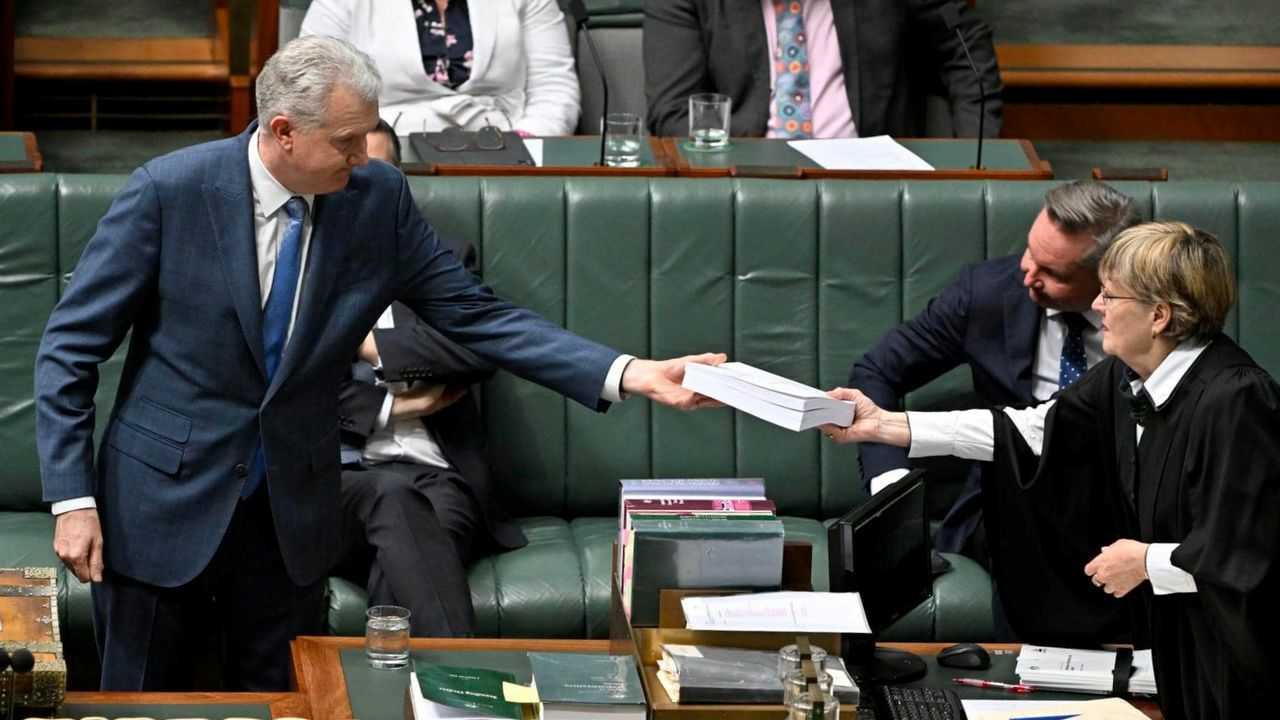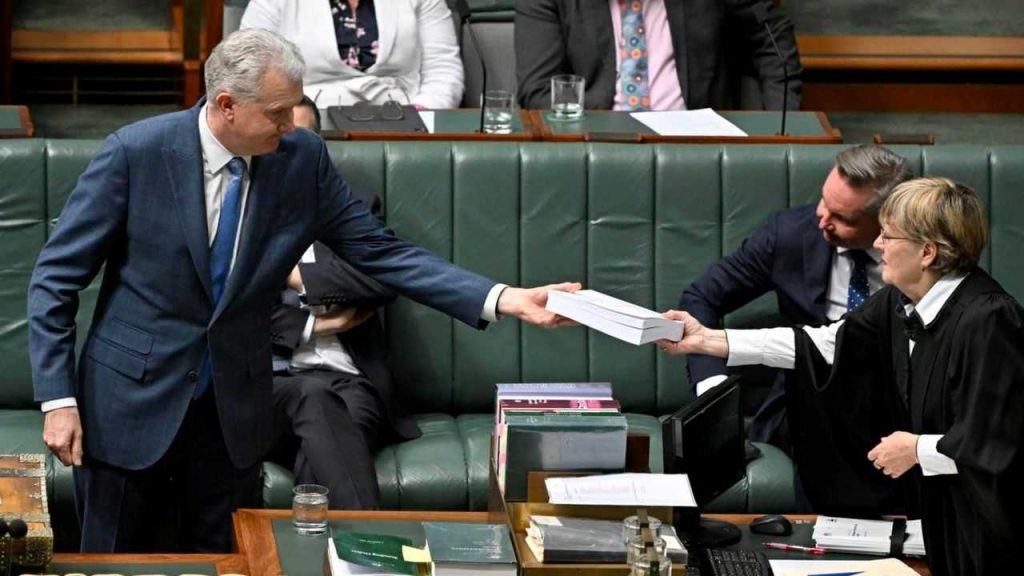
Australian Labor government’s workplace reform laws will enshrine insecure jobs and low pay
By Martin Scott
On Monday, Federal Minister for Workplace Relations Tony Burke introduced the Labor government’s latest tranche of proposed industrial relations reform. Entitled “Closing Loopholes,” the bill is ostensibly aimed at improving the wages and conditions of Australia’s most vulnerable workers, engaged as casuals, labour hire workers, or in the gig economy.

The whole pretense is a fraud. Labor and the trade unions themselves are centrally responsible for the rampant growth of casual and other precarious jobs. For the past forty years, they have spearheaded the assault on full-time jobs, implementing the dictates of finance capital.
In fact, the purpose of the legislation is not to reverse the growth of these exploitative forms of work, but to legitimise them, enshrining a Labor- and union-sanctioned cut-rate workforce. While the absolute minimum legal conditions will be improved slightly in some circumstances, these lower-tier workers will still be denied basic workplace rights.
To ensure that corporate profits are protected from any independent challenge by the working class, the proposed laws would further entrench the pro-business Fair Work Commission (FWC) and union bureaucracies as the arbiters of every workplace dispute.
Despite being the subject of months of bluster and a multi-million dollar negative advertising campaign by big business, Burke’s much-vaunted labour-hire measures will affect fewer than 70,000 workers. Estimates of the number of labour-hire workers in Australia vary widely, but this likely amounts to just 10–20 percent of the total.
Under the new laws, labour-hire firms could be compelled to pay workers at least the minimum rate specified for a given role in the enterprise agreement or industrial award covering direct employees of the “host employer.” While this minimum rate would include penalty rates, loadings and allowances, labour-hire workers could still be denied other entitlements contained in the company’s enterprise agreement.
Despite the “Closing Loopholes” moniker, exemptions abound. The rules would not apply to host employers with fewer than 15 regular employees—regardless of how many labour-hire workers, independent contractors, or casuals with irregular work patterns they utilise.
There would also be an exemption for “short-term” use of labour-hire. By default this would allow labour-hire workers to be paid less than direct employees for up to three months, but host employers would be allowed to apply to the FWC for an extension. These extensions could be recurring, potentially allowing highly seasonal businesses like ski resorts or fruit growers to avoid the new measures year after year.
Also excluded are labour-hire workers who perform “specialist or expert” services that are not the primary business of the host. What constitutes “specialist or expert” work is not detailed, but the definition is intended to be wide-ranging and is ultimately left to the discretion of the FWC. The legislation’s explanatory memorandum explicitly cites catering workers as an example. This exemption would still apply if the host employer has direct employees performing the same role.
Perhaps the most glaring limitation to the measures is that they will not be automatically applied. Workers will have to apply to the FWC for a “regulated labour hire arrangement order,” a legal process that will allow the host employer to plead its case for exemption. Only if and when such an order is made would labour-hire workers be entitled to the same minimum pay rates as direct employees.
The complexity of the Fair Work Act and the legal apparatus that enforces it virtually guarantees that such an application could only be launched by a trade union. This means the new laws will be used to drag workers into the unions in an attempt to reverse decades of declining membership.
In line with the demands of big business, if passed, the parts of the legislation relating to labour hire will not be implemented until November 2024.
Changes supposedly aimed at improving the pay and conditions of the growing number of workers engaged under highly-exploitative “gig economy” arrangements are also meagre and limited in scope.
The proposed legislation would establish a new category of “employee-like” workers, with fewer industrial rights than “employees.” The measures are targeted at gig economy workers engaged through online platforms, particularly in the food delivery and care sectors. This would empower the FWC to set minimum pay rates and deal with unfair deactivation cases, and grant union bureaucracies greater access to these areas.
But Burke made clear that these changes will not grant gig economy workers many basic workplace entitlements. He declared it would be illogical to legislate hourly pay for food delivery workers that included waiting time between jobs, instead suggesting that the FWC could set down minimum rates on a per-minute or per-five-minute basis, payable only when riders are actively making deliveries.
The new measures would also not establish minimum shift lengths or rostering arrangements, which Burke justified by parroting the companies’ common claim that workers enjoy the “flexibility” of gig work. In fact, 81 percent of food delivery workers surveyed by the McKell Institute in April said they were dependent on gig-work income to “pay bills and survive.”
Labor’s laws would do nothing to provide certainty for these workers of what they will earn in a given day of work. Neither would they remove the financial pressure food delivery riders face to complete jobs as quickly as possible, leading to unsafe practices.
The proposed legislation would establish a legal definition of an “employee,” (as opposed to an independent contractor), that takes into account the “real substance, practical reality and true nature” of a worker and their employer. This would reverse the precedent set by the High Court last year that only the precise wording of a contract could be considered to determine whether a worker must receive paid leave, superannuation and other entitlements that are required in the case of “employees,” but not for contractors.
While noting that a “multi-factorial assessment” would be required to determine whether a worker is an employee or a contractor, the legislation does not set down an exhaustive list of these factors, emphasising that the meaning of these terms will “continue to adapt to changing social conditions, market structures and work arrangements”—in other words, the demands of big business for evolving forms of exploitation.
This is not aimed at reducing or reversing the widespread use of outsourcing by major corporations. Instead, by creating a framework to slightly ameliorate the most egregious cases of sham contracting, Labor is seeking to head off the development of opposition to the continued destruction of permanent jobs and workers’ entitlements.
Similarly, proposed changes to casual conversion rights would do little to improve conditions for the millions of workers employed as casuals. Under the provisions, the time before casual employees who are rostered in a similar manner to part- or full-time workers are entitled to an offer of permanent employment would be halved to six months.
While this would allow these “casual-in-name-only” workers to access paid leave and other entitlements, as well as greater certainty of continued employment, it would not increase their total remuneration or hours of work. It would also do nothing to provide security for casuals who are not rostered on a regular schedule.
The bill has already been subject to extensive collaboration with—and concessions to—big business and the trade union bureaucracies. Burke emphasised this in his appearance at the National Press Club last week, beginning his address by acknowledging the presence of prominent business lobbyists.
Despite this, the proposed legislation has been the subject of heated, and at times, hysterical, debate in parliament and the corporate media. To an extent, this reflects the conflicting views of two sections of the ruling class over the best way to place the burden of the developing economic crisis on the shoulders of workers, and suppress their opposition to their declining living and working conditions.
Under conditions of the soaring cost of living, and growing fear among the ruling elite of escalating strikes and unrest as workers demand real wage increases, Labor is seeking to strengthen the union bureaucracies, with which it has collaborated in the destruction of jobs, wages and conditions for decades.
On the other hand, some big business layers believe that the influence of the unions has declined to the point that their services are no longer required as the chief organs of class and wage suppression.
There is also a theatrical element to the “debate,” in which the boisterous opposition to the proposed legislation from corporate figures provides a veneer of credibility to the claims of Labor and the union apparatus to be working in the interests of the working class.
In fact, the proposed legislation is aimed at deepening the grip over the working class of the very organisations—Labor, the unions and the pro-business industrial courts—that have presided over decades of cuts to jobs, wages and conditions.
Internationally, the class struggle is reemerging after decades of its suppression. Workers in Australia are and will come into conflict with the entire edifice of industrial laws and mechanisms used by Labor and the unions to block their struggles.
But to go forward, this emerging development poses the need for new and genuine organisations of struggle. That means the construction of independent rank-and-file committees, controlled by workers themselves, as the basis for a unified struggle and the development of a new, independent movement of the working class.
[This article was originally published by WSWS here on September 06, 2023]

